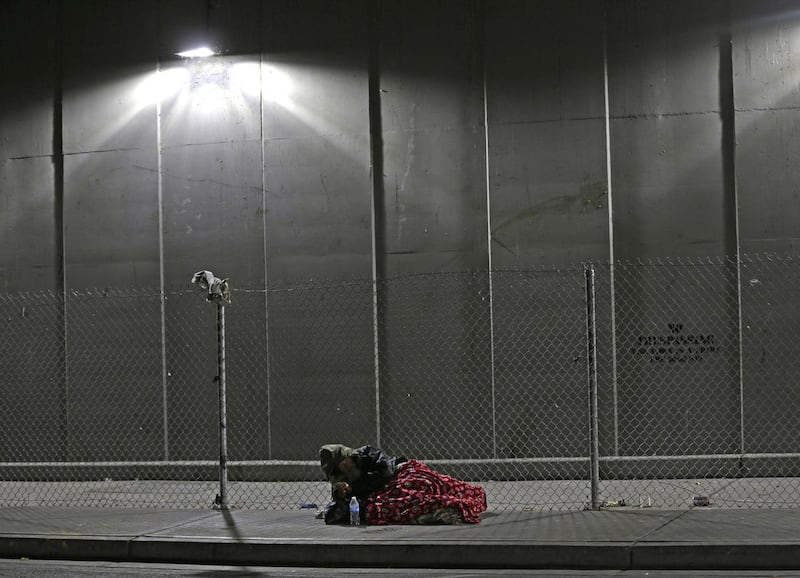Do you want to break the cycle of poverty? Be the kind of person people can trust — the kind who shows up. The kind who pays attention. The kind who looks for needs and finds resources to fill them. The kind who doesn’t disappear when your neighbor’s life gets messy, unwieldy and tenuous. The kind who keeps tabs on people even after they move. The kind who isn’t afraid of difficult circumstances. Who doesn’t judge.
Homelessness is synonymous with loneliness, isolation, lack of social support. Once a person or family finds themselves without permanent housing, it can be difficult or even impossible to get reconnected with a social network. And those social linkages are key to remaining tethered to the fabric of society. Access to jobs, safety and physical and mental health all rely on the ability to connect meaningfully with others.
I work with an ethnographer who has studied homelessness by himself being homeless for over three and a half years. He writes, “homelessness is the most lonely experience of my life. It is a constant gnawing hunger for acknowledgement, attention, love, and acceptance. This hunger is a deeper, darker shadow to the physical hunger that I experience daily. But as harsh as loneliness is, it is only the blunt periphery of the suffering. At its sharpest piercing center, I feel abandoned, betrayed, and forsaken.”
This loneliness — the sense of being forgotten by friends and family, strangers and society — is what he believes to be “the core driving experience behind so much of the addiction cycle, revenge psychology, and issues with authority” that occur among some in the homeless community.
This is a powerful idea — that the problem at the center of the seemingly intractable problem of homeless policy isn’t money, housing, jobs or food. And the root isn’t necessarily mental illness or addiction. It is loneliness.
One of the results of this distance between the person on the street and the passer-by is a sense of profound isolation. Conversation becomes rare or (worse yet) adversarial, even abusive. Eye contact, with which human beings acknowledge their mutual humanity, becomes all but absent. Human touch is but a memory. Bit by bit, connections with the social fabric are frayed and then disappear, ethereal as lonely strands floating in the wind.
We can ease some of this loneliness for people on the street by acknowledging and interacting with them — holding conversations, giving handshakes, making eye contact. Asking a person how their day has been, and really listening to the answer. Asking about ways we can help, and being ready to act.
But better yet, each of us can extend love, support and real help to our neighbors before they end up on the street in the first place. We can do better at our home teaching and visiting teaching. We can talk to our neighbors and establish a bond of trust so that if and when they need help, they can let us know. And each of us should try to pay better attention to subtle warning signals, because it can be hard for a person to let you know they are struggling or to ask for help. Too many wait to acknowledge their need until it is impossible to ignore. Earlier help is better help. And that requires us to pay attention to the details of our neighbors’ lives.
The poverty cycle requires conscious effort to overcome. Someone has to decide to do something different from what they have always done. We hope for systemic change, but the system includes each one of us, not just those facing financial insecurity. Every single one of us who decides whether or not to make eye contact. Or to shake someone’s hand. Or to smile, extend a greeting, wish a person well. To ask what they need, to offer help. To notice the message of “keep an eye on me — I may need help” in conversations about work, housing, finances and family relationships.
Like food in a desert, small acts of social grace can be a healing balm to the psychologically hungry. If you want to make a real difference, treat people on the street with at least the kindness and regard you would offer to any other stranger. And if you want to end homelessness, proffer this kindness and support to your neighbors before they end up on the street in the first place.
Eva Witesman is an associate professor at the Romney Institute of Public Management at Brigham Young University. She coauthored this article with a researcher who is doing undercover ethnographic research on homelessness.


